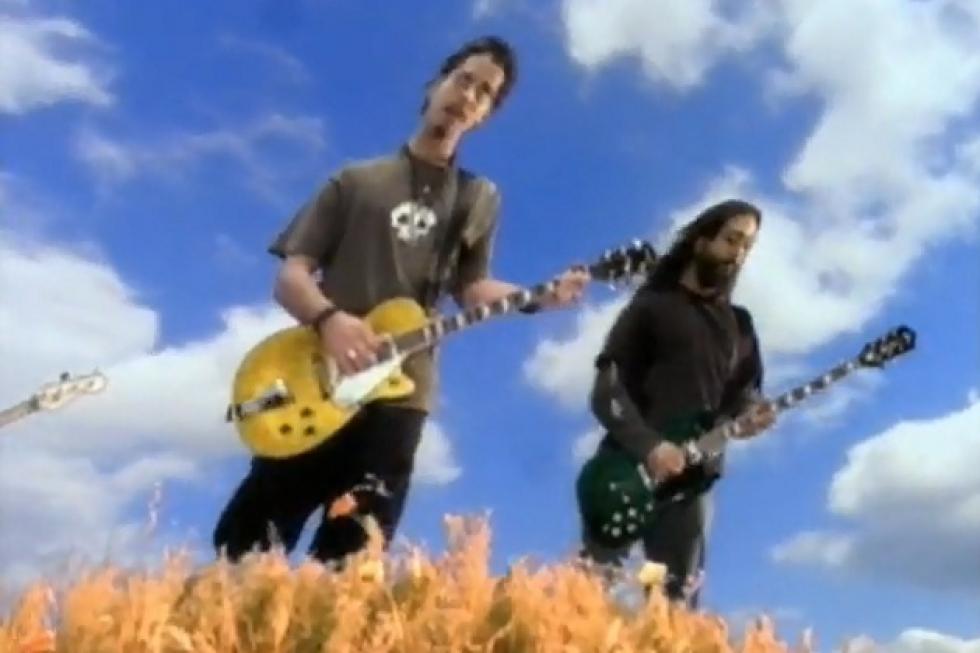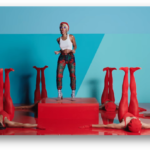I’m a person of color who came of age during the first decade of the 21st Century; I saw 9/11 unfold live on the TV at age 12, and when it was time to go to college, the global financial crisis gave me a rough welcome into adulthood. So far I’ve had to endure harsh working and living conditions in order to survive, and well, being born into a working-class family in Latin America does not give you a comfortable starting point anyway. Our lives are, by definition, a constant struggle, which is why we respond to art that reflects that struggle, particularly that of other oppressed and marginalized communities. It’s also why most of Rock and Roll has always felt empty to me. Even if I identify with the DIY ethic and the sonic poignancy of Punk, Indie, and Alternative Rock, most of those scenes’ concerns are merely #whitepeopleproblems. Most of it comes from a place of privilege, and a lot of artists don’t even seem aware of that.
For these reasons, I was never a fan a Grunge. Certainly, there were cool acts like Alice in Chains that took darker directions and had the tunes to back it up, but the scene’s emphasis on white malaise and disenfranchisement meant that I just couldn’t connect with it as much. Besides, I always felt that, even though they were able to say something powerful, they never said anything important. Chris Cornell, however, seemed like a different kind of rocker to me: His voice, from that spine-crushing wail in Temple of the Dog’s “Hunger Strike” to the hushed lament of “Fell on Black Days”, spoke into a deeper conscience, expressing an existential terror that set him apart. When Nirvana covered Leadbelly, Kurt Cobain sang the Blues, but Cornell was the Blues.
That sense of dread, of living through the horrors of a supposedly comfortable but ultimately meaningless life, is the crux of the message in “Black Hole Sun”. The song begins with a dual-guitar riff that’s both nostalgic and sinister, sunny and hazy, and this contrast is what carries the words and Cornell’s vocal all throughout the track. The pace and the vocal melody feel like some late 50’s/early 60’s love song, and there’s a sense of wide-eyed optimism soaking the first part of every verse; it’s what makes its gradual descent into minor-key bitterness so brilliant. It is that idyllic, suburban America showing its ugly face. The American Dream turning into a nightmare. And that chaotic, noisy 9/4 bridge perfectly encapsulates the violent emotional response of those who live in a system of privilege, but still feel alienated, crushed by the expectations and the false promises of such life. A golden cage is still a prison.
“Black Hole Sun” is Soundgarden’s best-known song, and its release as a single ─ along with an iconic music video that created such a big impression in my generation, everyone remembers the first time they saw it ─ helped the album Superunknown become a multi-platinum success. It may also be the greatest Grunge song ever. Kurt Cobain once mentioned that his ideal description of a Grunge song is “The Beatles meets Black Sabbath”, but none of his songs managed to get quite there; “Black Hole Sun”, with its giddy melodicism and its colossal riffs, treads that middle ground effortlessly. Soundgarden proved themselves to be light years from their peers in terms of compositional skills, but above all, the emotional resonance of their songs is undeniable. Chris Cornell spoke to us so deeply, in such an intimate way, that last year, when we got the news that we had lost him to depression and suicide, it immediately felt like a death in the family.




